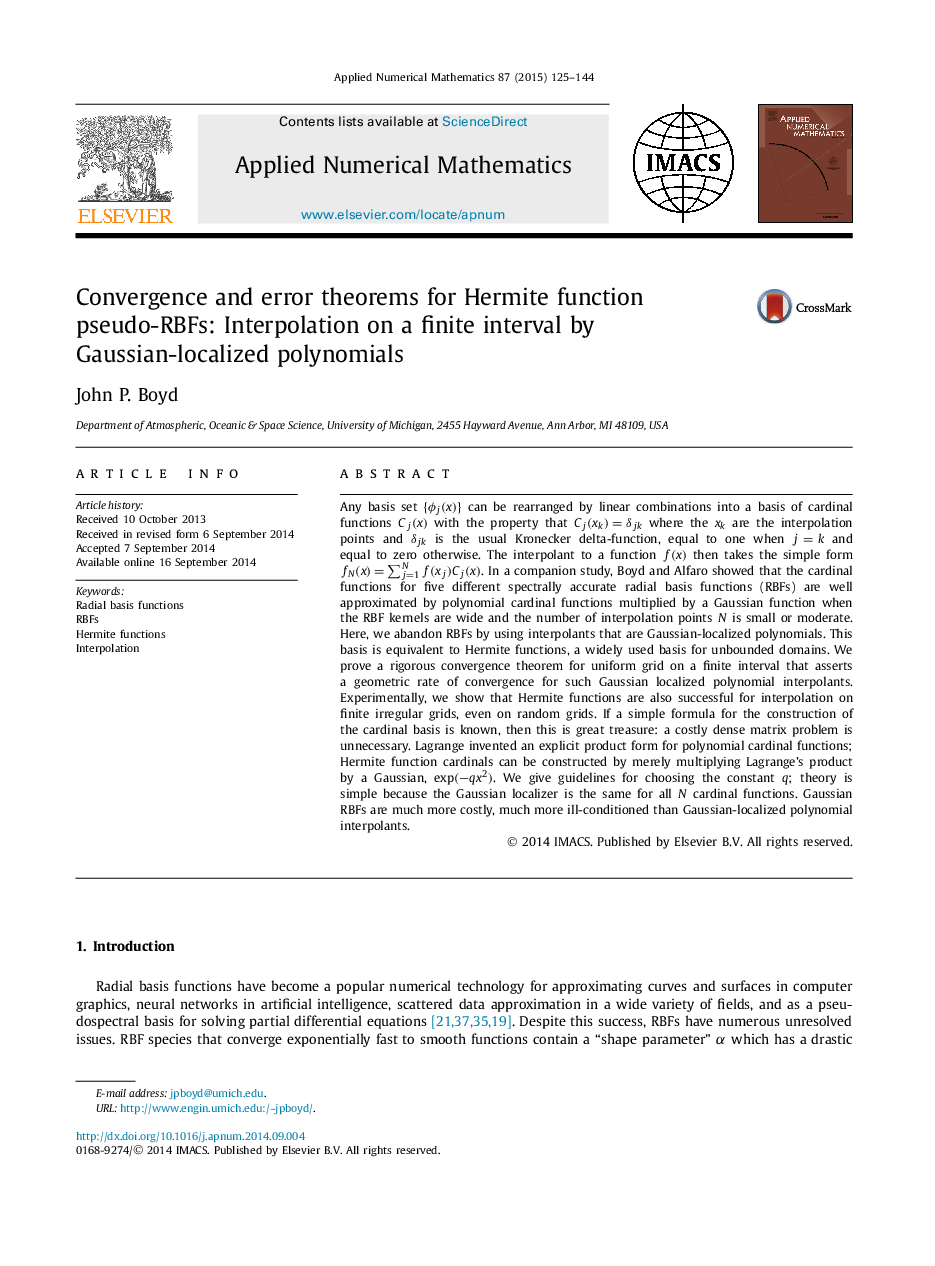| کد مقاله | کد نشریه | سال انتشار | مقاله انگلیسی | نسخه تمام متن |
|---|---|---|---|---|
| 4645080 | 1632186 | 2015 | 20 صفحه PDF | دانلود رایگان |
عنوان انگلیسی مقاله ISI
Convergence and error theorems for Hermite function pseudo-RBFs: Interpolation on a finite interval by Gaussian-localized polynomials
دانلود مقاله + سفارش ترجمه
دانلود مقاله ISI انگلیسی
رایگان برای ایرانیان
کلمات کلیدی
موضوعات مرتبط
مهندسی و علوم پایه
ریاضیات
ریاضیات محاسباتی
پیش نمایش صفحه اول مقاله

چکیده انگلیسی
Any basis set {Ïj(x)} can be rearranged by linear combinations into a basis of cardinal functions Cj(x) with the property that Cj(xk)=δjk where the xk are the interpolation points and δjk is the usual Kronecker delta-function, equal to one when j=k and equal to zero otherwise. The interpolant to a function f(x) then takes the simple form fN(x)=âj=1Nf(xj)Cj(x). In a companion study, Boyd and Alfaro showed that the cardinal functions for five different spectrally accurate radial basis functions (RBFs) are well approximated by polynomial cardinal functions multiplied by a Gaussian function when the RBF kernels are wide and the number of interpolation points N is small or moderate. Here, we abandon RBFs by using interpolants that are Gaussian-localized polynomials. This basis is equivalent to Hermite functions, a widely used basis for unbounded domains. We prove a rigorous convergence theorem for uniform grid on a finite interval that asserts a geometric rate of convergence for such Gaussian localized polynomial interpolants. Experimentally, we show that Hermite functions are also successful for interpolation on finite irregular grids, even on random grids. If a simple formula for the construction of the cardinal basis is known, then this is great treasure: a costly dense matrix problem is unnecessary. Lagrange invented an explicit product form for polynomial cardinal functions; Hermite function cardinals can be constructed by merely multiplying Lagrange's product by a Gaussian, expâ¡(âqx2). We give guidelines for choosing the constant q; theory is simple because the Gaussian localizer is the same for all N cardinal functions. Gaussian RBFs are much more costly, much more ill-conditioned than Gaussian-localized polynomial interpolants.
ناشر
Database: Elsevier - ScienceDirect (ساینس دایرکت)
Journal: Applied Numerical Mathematics - Volume 87, January 2015, Pages 125-144
Journal: Applied Numerical Mathematics - Volume 87, January 2015, Pages 125-144
نویسندگان
John P. Boyd,